
Blind Boy Fuller Biography
Born Fulton Allen, 1908, in Wadesboro, North Carolina, died February 13, 1941, in Durham, North Carolina; son of Calvin Allen and Jane Walker; married Cora Mae Martin, 1926.
One of the most popular exponents of the Piedmont blues style, guitarist and singer Blind Boy Fuller recorded, between 1935 and 1940, 135 sides that found their way into the repertoires of a great number of bluesmen of the pre-World War II era. An understudy of guitarist Blind Gary Davis, Fuller created a personal style which brought an individual stamp to the large body of his work. Fuller's musical repertoire included ragtime-influenced "hokum" songs (double entendre numbers) and down home blues, several of which he displayed an exceptional talent on slide guitar. Though much of his material was culled from traditional folk and blues numbers, Fuller possessed a formidable finger-picking guitar style - one that influenced musicians such as Brownie McGhee who, during the first years of his career, performed under the name of Blind Boy Fuller No. 2.
Blind Boy Fuller was born Fulton Allen in 1908 in the small country market town of Wadesboro, North Carolina. Despite his later musical sobriquet, Fuller was born sighted, and attended school in Wadesboro until the fourth grade. After his mother's death, his father, Calvin Allen, moved the family to Rockingham, North Carolina, where Fulton eventually learned to play the guitar.
In 1926 Allen married fourteen year-old Cora Mae Martin and moved to Rockingham, North Carolina. The following year, he began to lose his eyesight. As blues scholar Bruce Bastin explained in Red River Blues, "While he was living in Rockingham he began to have trouble with his eyes. He went to see a doctor in Charlotte who allegedly told him that he had ulcers behind his eyes, the original damage having been caused by some form of snow-blindness." In search of work, Allen took his young wife to live in Winston Salem, where for short time he found employment in a coal yard. Not long after, Allen became blind and, without means of employment, turned to music as a permanent vocation. Studying the records of country bluesmen like Blind Blake, Allen became a formidable musician in the use of finger picks and the playing of slide guitar.
In 1928 Allen briefly played the tobacco warehouses in Winston- Salem and Danville, Virginia, and then moved to Durham. In Looking up at Down, William Barlow, described how "Fuller soon became a familiar figure, playing along [Durham's] Pettigrew Street and around the nearby tobacco warehouses." Through a permit requested on behalf the Welfare Department, Allen played the "Black Bottom" section of Durham, and not long after, developed a small local following. Allen gathered around him musicians such as guitar and washboard player George Washington, and a blind South Carolina-born guitarist, Gary Davis (Reverend "Blind" Gary Davis). A brilliant finger-style guitarist, Davis served as Allen's guitar instructor. Allen's musical circle also included a young blind harmonica player, Sonny Terry, who would eventually make his recording debut with Allen.
In 1935 Allen came to the notice of young white record store manager and talent scout, James Baxter Long. While managing Durham's United Dollar Store, Long encountered Allen, and brought him to the attention of the American Recording Company. In July 1935, Long took Allen, Gary Davis, and George Washington to New York City where the musicians cut sides for the ARC label group-- sessions featuring solo pieces like "I'm a Rattlesnakin' Daddy" and numbers such as the traditional "Rag, Mama, Rag," on which Allen is accompanied by guitarist Gary Davis and Washington on washboard. To promote the material, as Bruce Bastin explained in the liner notes to Blind Boy Fuller: East Coast Piedmont Style, "Long decided that the name Fulton Allen would not sell 78s, and as Fulton would always be elided in speech, Blind Boy was coined. Washington, a light-skinned near albino, was the ubiquitous 'Red' from Bull City, so became Bull City Red."
In April 1936, Long organized another New York session for Fuller - now known as Blind Boy Fuller--during which the guitarist recorded ten solo performances. Fuller's February 1937 session included the accompaniment of Bull City Red and guitarist Floyd Council. In July 1937, Fuller, after auditioning for talent scout Mayo "Ink" Williams, recorded for the Decca label (he had never signed a contract with J.B. Long). Following the session with Decca, Fuller agreed to sign a contract with Long that placed him under his permanent management. During December 1937, Fuller performed in the studio with harmonica stylist Sonny Terry, cutting such sides as "Bye Bye Baby Blues."
In 1938 Fuller was incarcerated for shooting a pistol at his wife. In Looking up at Down, William Barlow described Fuller as "a diminutive man with an attractive face and pleasant smile, but [he] also had a fiery temper. He was a smart dresser, and he usually carried a thirty-eight pistol, which on one occasion he threatened to use on his agent J.B. Long. On another he did use it to shoot his wife, wounding her in the leg." Because of his connections with Long, and the unwillingness of his wife to testify against him despite her leg wound, Fuller was released from jail.
Fuller recorded with Sonny Terry in April 1938 and, in October of the same year, attended another session in Columbia, South Carolina--a date that produced the autobiographical number "Big House Bound," dedicated to his time spent in Durham's jailhouse. At a 1939 session held in Memphis, Fuller--accompanied by Washington and Sonny Terry--yielded such numbers as "You've Got Something There" with a unknown guitarist (possibly Sonny Jones). He also recorded with Terry and Washington (now billed as Oh Red) on the suggestive number "I Want Some of Your Pie." In the liner notes to the album Story of the Blues, English blues historian Paul Oliver observed that the "I Want a Piece of Your Pie" exhibits "a rag flavor and the ambiguities that are often found in Fuller's blues."
Fuller's last two recording sessions took place in New York City during 1940. One of these sessions produced the hit, "Step it and Go," modeled after "Bottle up and Go," a number popularized by Mississippi singer and guitarist Tommy McClennan. Though he emerged the last of the pre-World War II top-selling bluesmen, Fuller saw little monetary reward for his music. Suffering from a kidney aliment brought on by excessive drinking, he received intermittent hospital treatment and care at home from a family doctor. Eventually, Fuller refused admission to the hospital and remained under the supervision of his wife, Cora Mae. He died in Durham, North Carolina, on February 13, 1941. That same year, Brownie McGhee, in honor of his former mentor, recorded "The Death of Blind Boy Fuller" for the Okeh label.
Fuller was often criticized by blues critics and historians as a derivative musician--as opposed to a composer of one's unique own material. Fuller's ability to fuse together elements of other traditional and contemporary songs and reformulate them into his own performances, attracted a broad audience who were drawn to his facile guitar work and able voice. In a music rooted in a long history of borrowing and redefining melodies, themes and lyric lines, Fuller represented, in his performances, a sense of identity enabling him to become, as John Cowley noted in The Blackwell Guide, "one of the most successful street singer-guitarists on gramophone records during the New Deal period.
Blind Boy Fuller's Career
Worked as a laborer in a coal yard; by 1928 performed as a street musician and learned guitar from Gary Davis; 1935 recorded for the American Recording Company; first recorded with Sonny Terry in 1937; in July 1937 recorded sides for Decca label; throughout late 1930s performed in the North Carolina cities of Raleigh, Greensboro, and Chapel Hill, and Memphis, Tennessee; October 1938 attended recording session in Columbia, South Carolina; recorded in Memphis 1939; last sessions for ARC took place in New York City 1940.
On August 25, 2001, in the Hayti district of Durham, North Carolina, a historical marker was set up on the corner of Fayetteville and Simmons Streets, outside a branch of the Durham Public Library, where the American Tobacco Trail wends its way for those interested. The marker's heading, 'Bull City Blues', paid tribute to a group of long-dead musicians, led by Blind Boy Fuller and Blind Gary Davis, who more than 60 years previously would play for factory workers gathered around a barbecue stand set up across the street. Back in the summer of 1939, J.B. Long drove Blind Boy Fuller, Sonny Terry and George (Oh Red) Washington to Memphis for a July 12 recording session. Fuller went first, cutting twelve titles, three solo, five with Terry's harmonica, five with Oh Red's washboard (only 'I Want Some Of Your Pie' had both Terry and Red present). Two, 'You've Got Something There' and 'Red's Got The Piccolo Blues', featured a second guitar probably played by Sonny Jones, who cut three titles of his own at the end of the session. There was a recording trip to New York in the middle of June 1940 for the Fuller/ Terry/Washington trio. Although the latter didn't have a session to himself, four of the twelve masters allocated to Blind Boy Fuller were in fact released as by Brother George And His Sanctified Singers. 
128kbps
Tracks
101. Blind Boy Fuller - I Don't Care How Long
102. Blind Boy Fuller - You've Got Something There
103. Blind Boy Fuller - Baby Quit Your Low Down Ways [Take 1]
104. Blind Boy Fuller - Baby Quit Your Low Down Ways [Take 2]
105. Blind Boy Fuller - It Doesn't Matter Baby
106. Blind Boy Fuller - Black Bottom Blues
107. Blind Boy Fuller - I Crave My Pigmeat
108. Blind Boy Fuller - Big Leg Woman Gets My Pay
109. Blind Boy Fuller - I'm A Stranger Here
110. Blind Boy Fuller - Red's Got The Piccolo Blues
111. Blind Boy Fuller - I Want Some Of Your Pie
112. Blind Boy Fuller - Jivin' Big Bill Blues
113. Blind Boy Fuller - Woman You Better Wake Up
114. Blind Boy Fuller - Step It Up And Go
115. Blind Boy Fuller - Worn Out Engine Blues
116. Blind Boy Fuller - Blue And Worried Man
117. Blind Boy Fuller - Passenger Train Woman
118. Blind Boy Fuller - Shake It Baby
119. Blind Boy Fuller - Somebody's Been Talkin'
120. Blind Boy Fuller - Three Ball Blues
121. Blind Boy Fuller - Little Woman You're So Sweet
122. Blind Boy Fuller - Good Feeling Blues
123. Blind Boy Fuller - You Can't Hide From The Lord
124. Blind Boy Fuller - Twelve Gates To The City
125. Blind Boy Fuller - Crooked Woman Blues
201. Blind Boy Fuller - I Don't Want No Skinny Woman
202. Blind Boy Fuller - Bus Rider Blues
203. Blind Boy Fuller - You Got To Have Your Dollar
204. Blind Boy Fuller - Lost Lover Blues
205. Blind Boy Fuller - Thosand Woman Blues
206. Blind Boy Fuller - Bye Bye Baby
207. Blind Boy Fuller - When You Are Gone
208. Blind Boy Fuller - No Stranger Now
209. Blind Boy Fuller - Must Have Been My Jesus
210. Blind Boy Fuller - Jesus Is A Holy Man
211. Blind Boy Fuller - Precious Lord
212. Blind Boy Fuller - Night Rambling Woman
213. Blind Boy Fuller, Bull City Red - Now I'm Talking About You
214. Blind Boy Fuller, Bull City Red - I Saw The Light
215. Blind Boy Fuller, Bull City Red - Richmond Blues
216. Blind Boy Fuller, Bull City Red - I Won't Be Dogged Around
217. Blind Boy Fuller, Bull City Red - Pick And Shovel Blues
218. Blind Boy Fuller, Bull City Red - Black Woman And Poison Blues
219. Blind Boy Fuller, Bull City Red - Mississippi River
220. Blind Boy Fuller, Bull City Red - Have You Decided (Which Way To Go)
221. Blind Boy Fuller, Bull City Red - I See The Sign Of Judgement
222. Blind Boy Fuller, Bull City Red - Everybody Wants To Know How I Die
223. Blind Boy Fuller, Bull City Red - I Feel Like Shoutin'
224. Blind Boy Fuller, Bull City Red - Jesus Touched Me
225. Blind Boy Fuller, Bull City Red - Talkin' With Jesus
301. Blind Boy Fuller, Cedar Creek Sheik - Ford V-8
302. Blind Boy Fuller, Cedar Creek Sheik - Watch The Fords Go By
303. Blind Boy Fuller, Cedar Creek Sheik - Mary Had A Little Lamb
304. Blind Boy Fuller, Cedar Creek Sheik - She's Totin' Something Good
305. Blind Boy Fuller, Cedar Creek Sheik - What A Pity
306. Blind Boy Fuller, Cedar Creek Sheik - I Believe Somebody's Been Ridin' My Mule
307. Blind Boy Fuller, Cedar Creek Sheik - Don't Use That Stuff
308. Blind Boy Fuller, Cedar Creek Sheik - Buy It From A Poultry Man
309. Blind Boy Fuller, Cedar Creek Sheik - Don't Credit My Stuff
310. Blind Boy Fuller, Cedar Creek Sheik - Jimmy Shut His Store Doors
311. Blind Boy Fuller, Roosevelt Antrim - No Use Of Worryin'
312. Blind Boy Fuller, Roosevelt Antrim - Complaint To Make
313. Blind Boy Fuller, Roosevelt Antrim - I Guess You're Satisfied
314. Blind Boy Fuller, Roosevelt Antrim - Station Boy Blues
315. Blind Boy Fuller, Virgil Childers - Dago Blues
316. Blind Boy Fuller, Virgil Childers - Red River Blues
317. Blind Boy Fuller, Virgil Childers - Who's That Knockin' At My Door
318. Blind Boy Fuller, Virgil Childers - Somebody Stole My Jane
319. Blind Boy Fuller, Virgil Childers - Travelin' Man
320. Blind Boy Fuller, Virgil Childers - Preacher And The Bear
321. Blind Boy Fuller, Sonny Jones - Won't Somebody Pacify My Mind
322. Blind Boy Fuller, Sonny Jones - I'm Pretty Good At It
323. Blind Boy Fuller, Sonny Jones - Love Me With A Feeling
324. Blind Boy Fuller, Sonny Jones - Dough Roller
401. Blind Boy Fuller, Floyd Council - Runaway Man Blues
402. Blind Boy Fuller, Floyd Council - I'm Grievin' And I'm Worryin'
403. Blind Boy Fuller, Floyd Council - Don't Want No Hungry Woman
404. Blind Boy Fuller, Floyd Council - Working Man Blues
405. Blind Boy Fuller, Floyd Council - Poor And Ain't Got A Dime
406. Blind Boy Fuller, Floyd Council - Lookin' For My Baby
407. Blind Boy Fuller, Welly Trice - Come On In Here Mama
408. Blind Boy Fuller, Welly Trice - Let Her Go God Bless Her
409. Blind Boy Fuller, Little Boy Fuller - Come On Baby
410. Blind Boy Fuller, Little Boy Fuller - Trembling Bed Springs
411. Blind Boy Fuller, Little Boy Fuller - Shake Your Stuff
412. Blind Boy Fuller, Little Boy Fuller - Lazy Bug Blues
413. Blind Boy Fuller, Little Boy Fuller - Bed Spring Blues
414. Blind Boy Fuller, Little Boy Fuller - Pack It Up And Go
415. Blind Boy Fuller, Little Boy Fuller - Blood Red River Blues
416. Blind Boy Fuller, Little Boy Fuller - Down-Hearted Man
417. Blind Boy Fuller, Frank Edwards - Sweet Man Blues
418. Blind Boy Fuller, Frank Edwards - Three Women Blues
419. Blind Boy Fuller, Frank Edwards - Terraplane Blues
420. Blind Boy Fuller, Frank Edwards - We Got To Get Together
421. Blind Boy Fuller, Frank Edwards - Love My Baby
422. Blind Boy Fuller, Frank Edwards - Gotta Get Together
423. Blind Boy Fuller, Dennis McMillon - Woke Up One Morning
424. Blind Boy Fuller, Dennis McMillon - Poor Little Angel Girl
425. Blind Boy Fuller, Dennis McMillon - Paper Wooden Daddy
426. Blind Boy Fuller, Dennis McMillon - Goin' Back Home
ShareThis

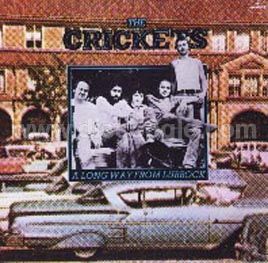
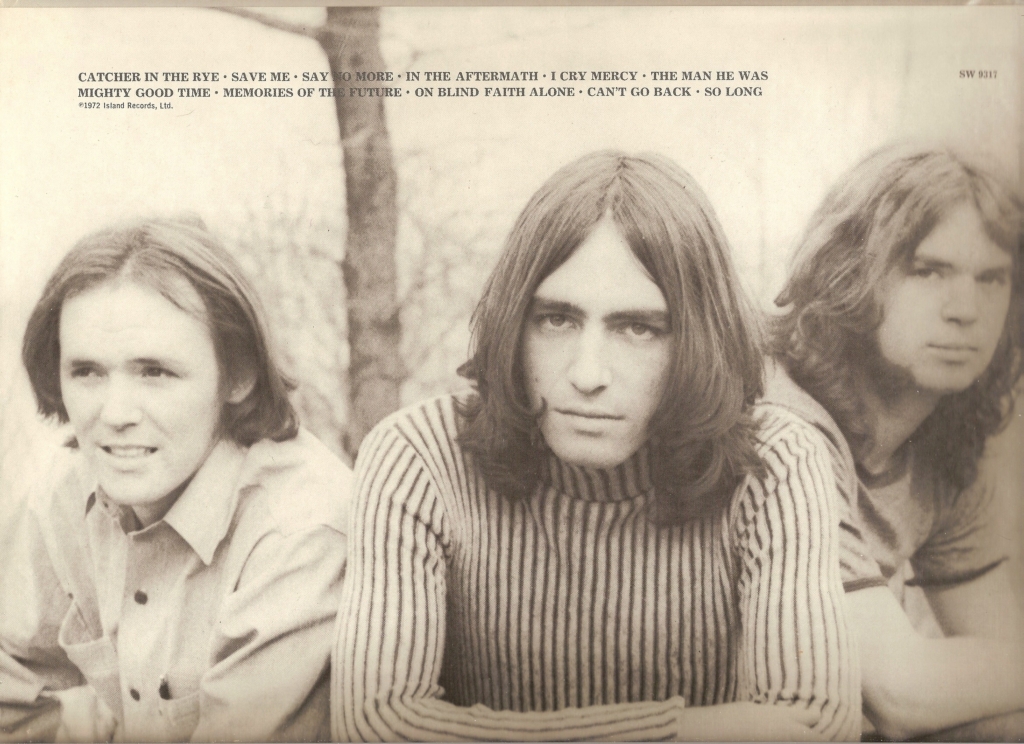
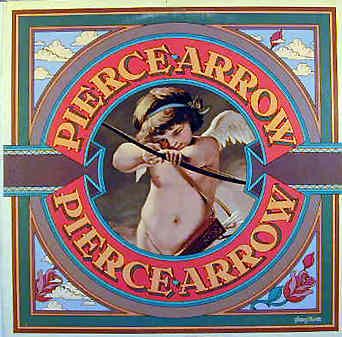
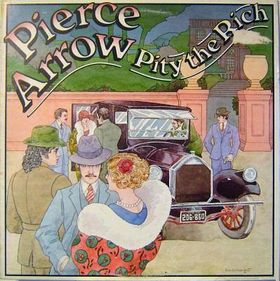


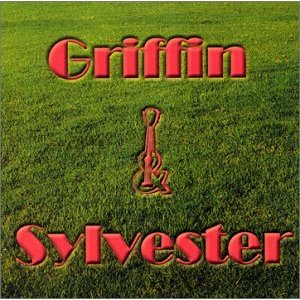
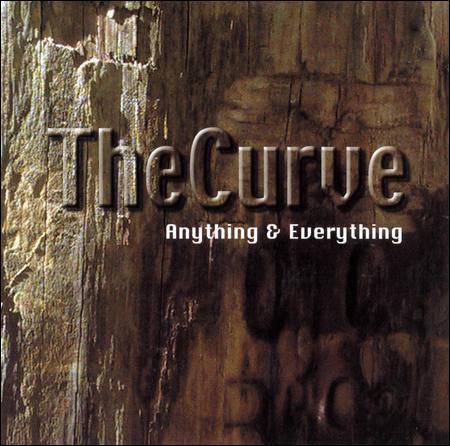




1 comments:
Thank you for taking the time to say hi. I hope your enjoying the variety of music and the awsome request everyone comes up with hopefully this will educate a lot of people and help some friends along the way. Hope to hear from you again.
Cheers and Enjoy
MrJJ
http://static.esmartmusic.com/grapevine.htm
Post a Comment